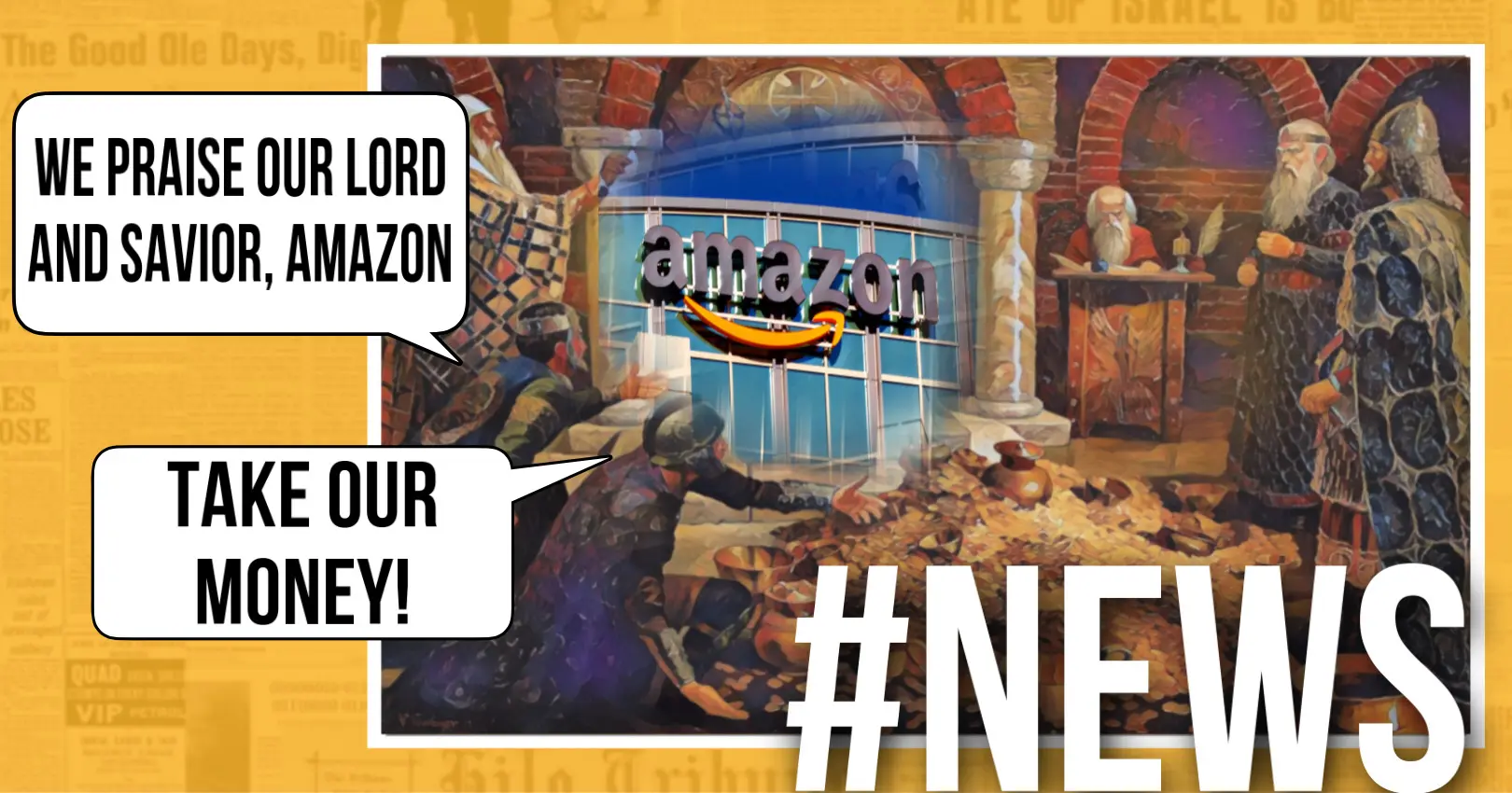Robotics, ambient computing and space flights
As Amazon celebrates its 25th birthday, robotics, ambient computing and potentially even space flight are some of the trends it could dominate.
Amazon was founded 25 years ago by Jeff Bezos in his Seattle-area garage on July 5, 1994. Since that time the company has evolved into one of the most influential companies in the world, with reach into a vast array of industries, from its core e-commerce and cloud businesses to hardware, entertainment, advertising and more.
Despite Amazon’s success and market power, Bezos has mused that Amazon’s dominance won’t last forever. The keys to avoiding or at least putting off this decline, according to Bezos, are to maintain its customer obsession, continue its “high-velocity decision making” and embrace big, external trends.
So what else could the future hold for Amazon? Here’s a look at some of the more forward-looking initiatives the company and its founder working on, and how they could play out in the years to come.
Robotics
Amazon first introduced robots in its fulfillment centers back in 2014, with a mobile storage unit called Atlas. Since then, it’s gradually incorporated more automation and robotics systems into its fulfillment network that work alongside humans to help sort and move orders; in April, it acquired Canvas, which makes robotic carts powered by computer vision. What’s lacking are robots that can grasp objects as well as a human can.
In an interview at the Re:MARS conference in June, Bezos said that he believes that nimbler robots, with finer motor skills, are one innovation that’s coming sooner than people think: “Grasping is going to be a solved problem in the next 10 years, even in a commercial way,” Bezos told an audience. That advancement, if incorporated successfully into Amazon warehouses, could improve efficiency across its hundreds of operational facilities.
Computing Everywhere
Just four years after Alexa was born, Amazon’s virtual assistant seems to be everywhere. While it may be the most visible example of how Amazon is bringing ambient computing to life, there are more projects in the works.
One such initiative is Amazon’s Project Kuiper, the goal of which is to launch a network of 3,200 low-orbit satellites to blanket the earth with high-speed internet access. It’s worth remembering, as well, that an explosion of connectivity, and connected devices, across the globe will demand ever more cloud computing services — a trend that Amazon’s AWS is well-positioned to capture.
Space and Beyond
Although it’s not part of Amazon, Bezos has big ambitions for his space flight company, Blue Origin. It’s much more than just a pet project. On a rocket called New Shepard, which is currently used for research payloads, the company plans to send a few lucky humans into orbit later this year.
And space flight could be just the beginning, if Bezos’ vision comes to fruition. At the Re:MARS conference, Bezos described the possibilities for mining the moon for raw materials to make rocket propellent, and eventually, moving polluting “heavy industry” off Earth entirely and turning the moon into an industrial center.
Bezos said that the mission of Blue Origin is “to build that infrastructure so future generations can stand on top of it, just like I stood on top of the USPS.” Asked whether we’ll see Amazon fulfillment centers on the moon someday, he quipped: “We’ll start out delivering liquid hydrogen and liquid oxygen — it will be a small selection, but an important one.”
Source: TheStreet.com
More Amazon news

How can New Year holidays in the US and Canada affect cargo delivery dates
Customs and shipping companies working schedule during the New Year Important information for more accurate forecasting of cargo processing speed in the US and Canada during the New Year holidays. Please note that Customs and shipping companies will not work during...

Major shutdowns in China due to new COVID outbreaks
Multiple companies in Zhejiang province have suspended operations due to COVID-19 outbreak, halting production of goods from batteries and clothing to textile dyes and plastics. Zhejiang is one of China's biggest and busiest manufacturing hubs. The local government...

Amazon is using sellers as a cash cow
Amazon collects a third of seller revenue A new study claims that Amazon makes far more from fees on its Marketplace platform than even the cash cow known as AWS, reports TechCrunch. According to the report by the Institute for Local Self-Reliance, sellers now give...


